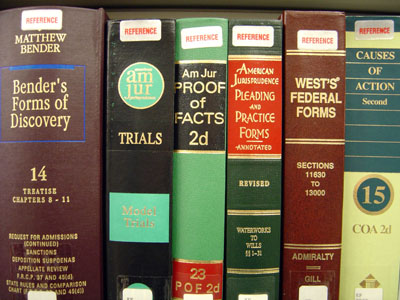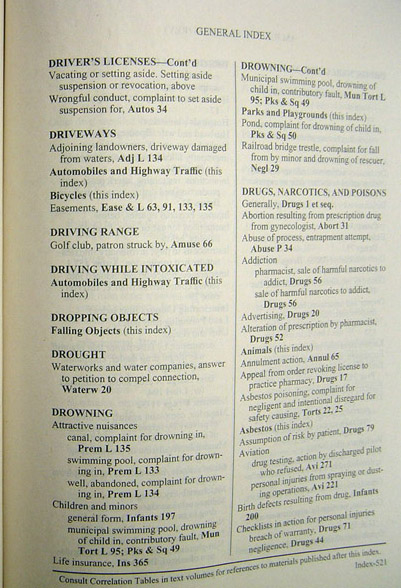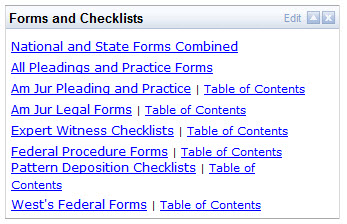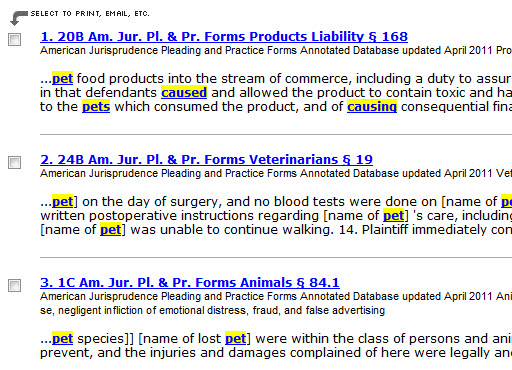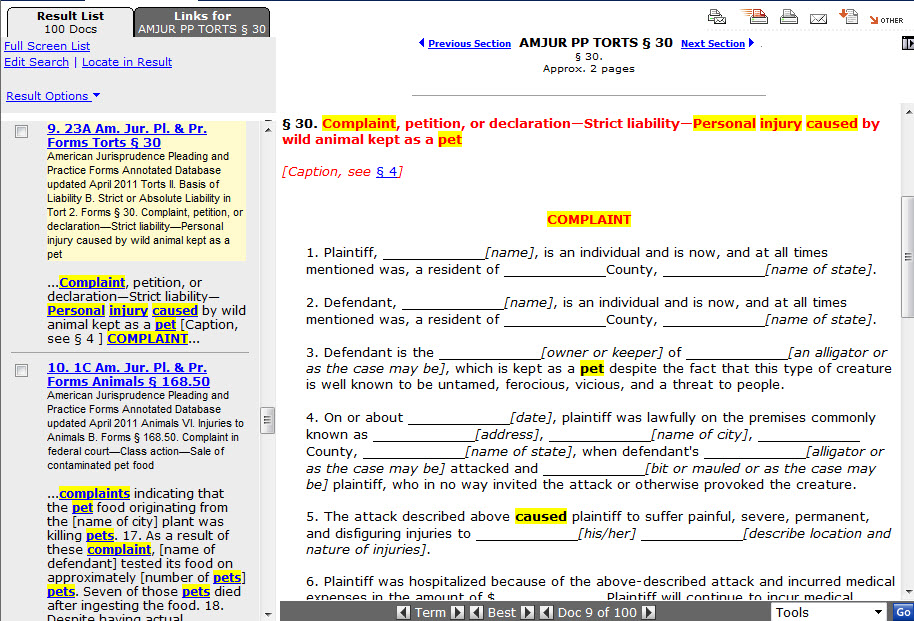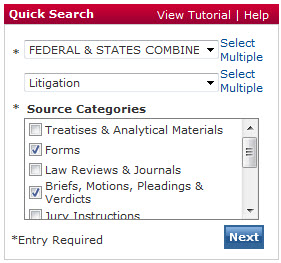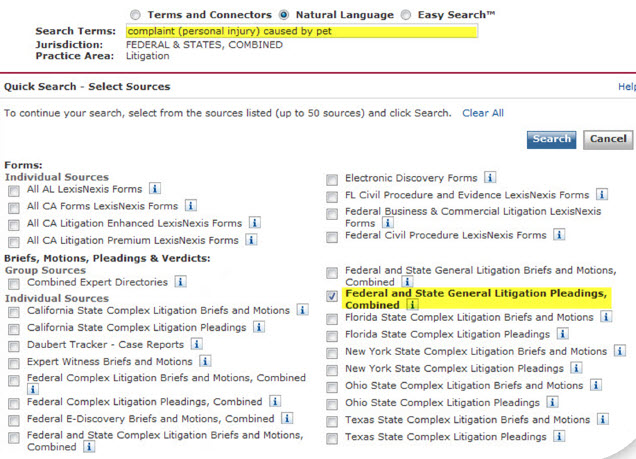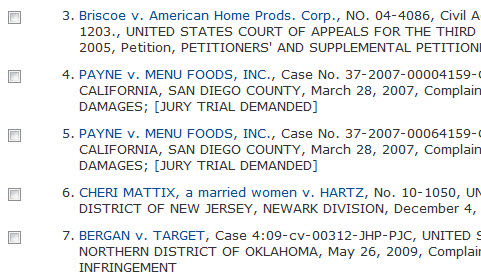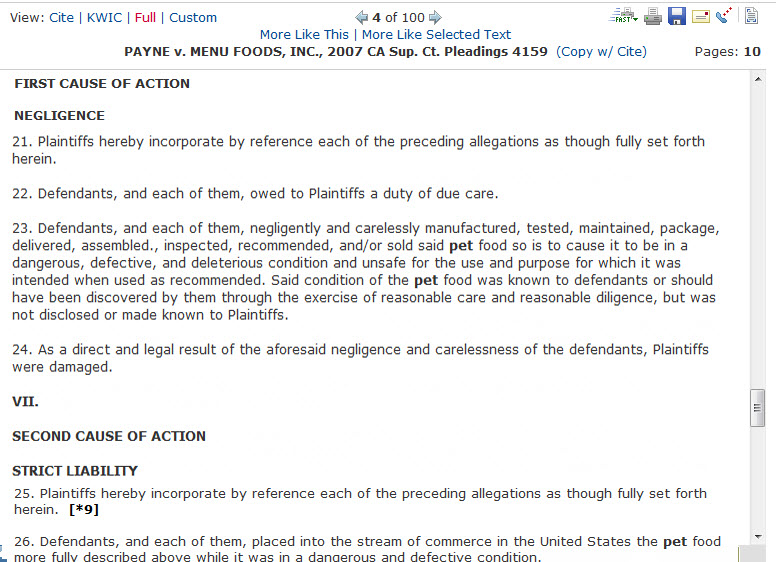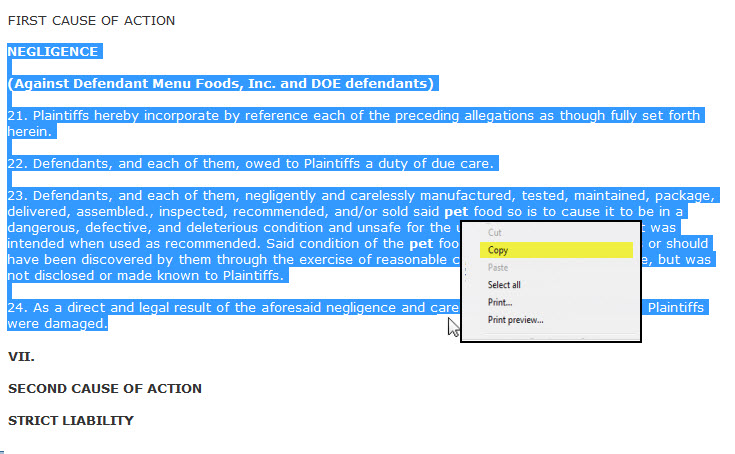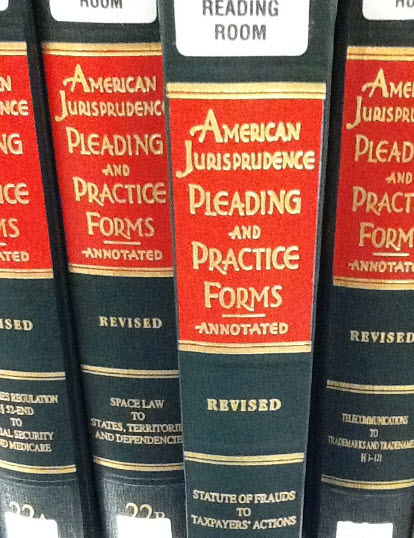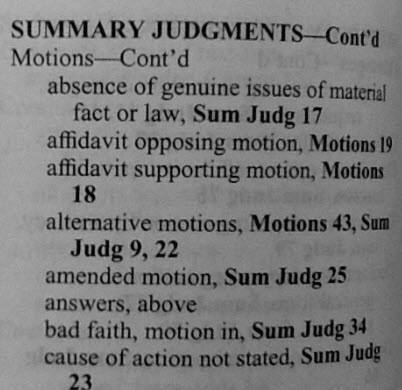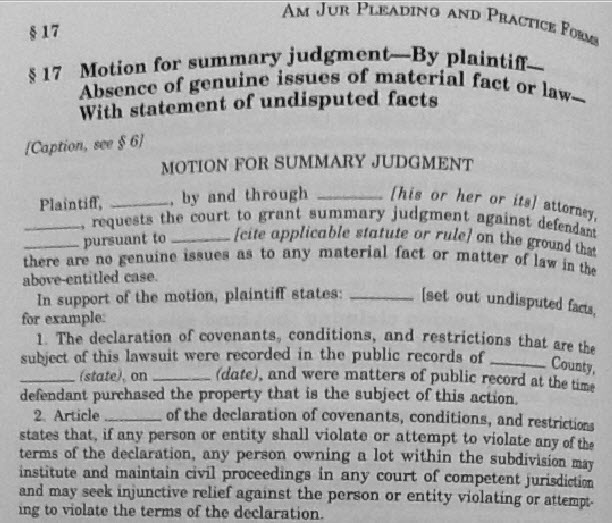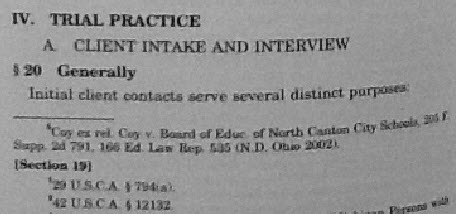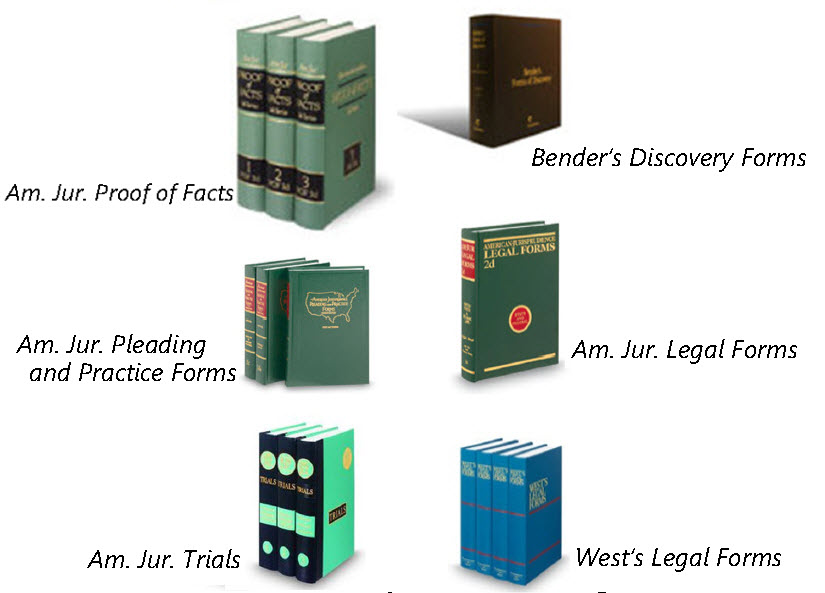| Volume II, Chapter §5.2 Litigation Support Through Research |
Interactive Study | Form Books
There are dozens of form books. Here we teach you about their function, and how to locate them. Forms & Templates:
How and When to Use Them Forms Templates You should complete the exercises in the manual by using the Law Library, Westlaw and Lexis. When you use a law library, you will need to be flexible since each no two libraries contain the exact same materials. Don't stress about it. Just wade in and see what you can find, and see which books you prefer. When you use Westlaw and Lexis, the hardest part will be wading through the thousands of forms available. Your best bet is to focus initially on:
When using Bender's Forms on Lexis, you will need to choose from one of the many subject matter areas that appears to be relevant for your research. Most likely, you will select Litigation. One more note about the online forms. Westlaw and Lexis (and lawyers in general) do not separate form books that contain, well, "forms" from books that are more like practice guides for law. So if you are online and find books with titles such as "McConnell's Bankruptcy Practice Guide," you may want to skip it. Instead, look for books with the word "forms" in the title. There are many, many form books in any typical law library, but there is no way to know exactly what selection your library will contain. So use this as a great opportunity to learn the following: 1. What form books your law library subscribes to. 2. The various form books and collections on Westlaw and/or Lexis. 3. As you find online forms that you think are good examples, be sure to save them and start creating your own form bank. They are free now, but they won't be once you start working for a firm and they have to subscribe to those online services! Just as we can't know what form books your law library will contain, you can't know now what subscription plan your law firm will have for online research. Some of your favorite form book databases may not be available to you in your law firm. So knowing how to find them in the law library will be a research safety net.
FORMS AM. JUR. PROOF OF FACTS |
Audio Companion: Researching Form Books
Am. Jur. Proof of Facts
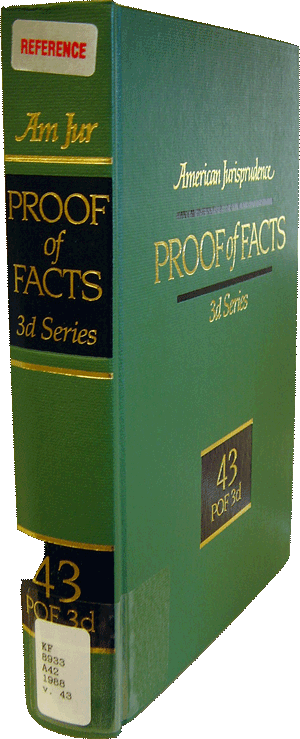
As you will see by reading this section, Am. Jur. Proof of Facts is a great tool. Not many researchers know about it, so you will have an advantage!
There are so many form books available that it is difficult to say where to start. But Am. Jur. Proof of Facts is a very unique research source. It is easy to use, and provides very diverse litigation assistance. Some "Proofs" provide examples, some provide forms, and some provide discovery models. You may even find checklists. Some provide all of the above and more.
One thing is for sure: If you use Am. Jur. Proof of Facts as a regular research source, you will be a step ahead of most other researchers. So take the time to get to know this great set of form books!
 |
|

